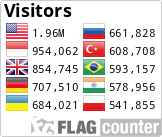The Role of Telecommunications Regulation in Supporting Universal Access Based on the Theory of Law as a Tool to Achieve Social Goals
DOI:
https://doi.org/10.59613/global.v2i9.317Abstract
Universal access to telecommunications services is a key factor in achieving social justice and sustainable economic development. The availability of widespread and affordable telecommunications services is crucial for various segments of society. Efforts to achieve equitable and affordable telecommunications access face various challenges, especially in remote and underdeveloped areas. Regulation plays a crucial role in supporting universal access to equitable telecommunications services. The application of legal theory as a tool to achieve social goals can be seen through various policies designed to support universal access. A comprehensive and inclusive legal approach to telecommunications regulation can act as a catalyst for positive and sustainable social change
Downloads
Published
How to Cite
Issue
Section
License
Copyright (c) 2024 Arief Hamdani Gunawan, I Gusti Ayu Ketut Rachmi Handayania, Lego Karjoko

This work is licensed under a Creative Commons Attribution 4.0 International License.













